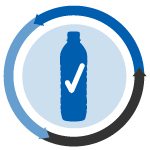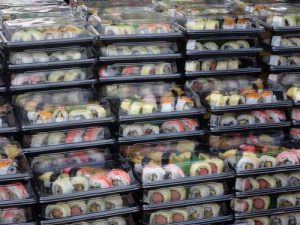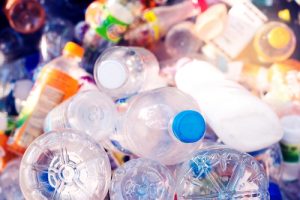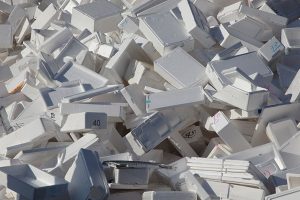 A scientific panel signed off on a slew of PET recycling technologies this year, determining they produce clean RPET that can be used in food and drink packaging.
A scientific panel signed off on a slew of PET recycling technologies this year, determining they produce clean RPET that can be used in food and drink packaging.

 A scientific panel signed off on a slew of PET recycling technologies this year, determining they produce clean RPET that can be used in food and drink packaging.
A scientific panel signed off on a slew of PET recycling technologies this year, determining they produce clean RPET that can be used in food and drink packaging.
 In Europe, thermoform packaging is using more and more RPET content, but impediments remain to efficient recycling of the thermoforms themselves. A workshop recently discussed the issues.
In Europe, thermoform packaging is using more and more RPET content, but impediments remain to efficient recycling of the thermoforms themselves. A workshop recently discussed the issues.
 Procter & Gamble announces the expansion of a technology for recovering plastics from diapers, and reclaimers install new equipment to boost their capacities.
Procter & Gamble announces the expansion of a technology for recovering plastics from diapers, and reclaimers install new equipment to boost their capacities.
 For years, a European Union panel has given its thumbs up to using recycling processes to generate food-contact recycled plastics, but those opinions aren’t official government “approvals.” Some groups say the lack of official authorization from the European Commission has lead to damaging uncertainty for the industry.
For years, a European Union panel has given its thumbs up to using recycling processes to generate food-contact recycled plastics, but those opinions aren’t official government “approvals.” Some groups say the lack of official authorization from the European Commission has lead to damaging uncertainty for the industry.
 A California company will process carpets underwater to generate better-quality nylon and PP pellets, and a French company says a recently acquired plastics reclaimer is compatible with its polymer compatibilization business.
A California company will process carpets underwater to generate better-quality nylon and PP pellets, and a French company says a recently acquired plastics reclaimer is compatible with its polymer compatibilization business.
 In Canada, a number of companies are tackling difficult plastic streams without using traditional mechanical recycling processes. One of them, Pyrowave, uses microwaves to depolymerize polystyrene scrap and has recently made some strong steps forward.
In Canada, a number of companies are tackling difficult plastic streams without using traditional mechanical recycling processes. One of them, Pyrowave, uses microwaves to depolymerize polystyrene scrap and has recently made some strong steps forward.
A polymer modifier technology was used compatibilize different resins in multilayer packaging so they could be recycled into new garbage bags. Those bags were then used by volunteers to clean plastics from coastlines.
 The U.S. Food and Drug Administration will allow recycled PET fiber to be used to make tea bags, fruit or meat packaging and more. It also gave the go-ahead to use recycled plastics in several types of thermoform packaging.
The U.S. Food and Drug Administration will allow recycled PET fiber to be used to make tea bags, fruit or meat packaging and more. It also gave the go-ahead to use recycled plastics in several types of thermoform packaging.
 Achievements in flexible film packaging recycling are announced, and a new modifier for polyamides is released.
Achievements in flexible film packaging recycling are announced, and a new modifier for polyamides is released.
